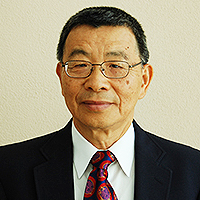Evaluation of outcomes of 8-week therapy with ledipasvir/sofosbuvir or glecaprevir/pibrentasvir in veterans with hepatitis C infection
Published on: 13th November, 2019
OCLC Number/Unique Identifier: 8333016947
Hepatitis C Virus (HCV) infection is usually treated with direct acting antivirals (DAAs) for 12 weeks. In treatment naive patients with genotype (GT) 1 infection without cirrhosis and baseline viral load < 6 million, 8 weeks of Ledipasvir/Sofosbuvir (LDV/SOF) is an option. Eight weeks with Glecaprevir/Pibrentasvir (GLE/PIB) is an option for patients with GT 1 through 6 without cirrhosis. Our objective was to evaluate achievement of Sustained Virologic Response (SVR) after 8 weeks of LDV/SOF or GLE/PIB in our HCV-infected veterans. Patients with HCV infection that received GLE/PIB or LDV/SOF for a planned 8 weeks of therapy in the past four years were reviewed (January 2015-September 2018). Treatment outcomes were evaluated through medical record review.
Two hundred sixty-five veterans were initiated on 8 weeks of therapy with either GLE/PIB or LDV/SOF. Of these, 231 (87%) were initiated on 8 weeks of LDV/SOF and 34 (13%) were initiated on 8 weeks of GLE/PIB. The majority of patients had GT 1 (93%) infection. One hundred and ninety-five veterans who completed 8 weeks of LDV/SOF and 30 veterans on GLE/PIB had follow-up viral loads. The overall SVR was 95%. Treatment with GLE/PIB resulted in a higher SVR rate (100%) compared to LDV/SOF (95%). Elderly patients had similar SVR rates. Treatment with 8 weeks of DAA is effective in our veteran population and showed an SVR rate similar to literature reports. The SVR for patients treated with 8 weeks LDV/SOF was slightly lower than the SVR for GLE/PIB; however, the GLE/PIB population was smaller
New era of liver transplantation for HIV-HCV Co-infected patients: A case report
Published on: 14th November, 2017
OCLC Number/Unique Identifier: 7317597134
Morbidity and mortality of HIV-infected patients have been improved over the last decades with the advent of combined antiretroviral therapy. As a result, other comorbidities such as chronic kidney and chronic liver diseases have emerged in the HIV population. A considerable percentage of end-stage liver disease (ESLD) in HIV population is attributed to hepatitis C co-infection and reactivation, and a growing need for solid organ transplantation has emerged among those patients. On the other hand, several studies on liver transplantations of patients co-infected with human immunodeficiency virus (HIV) and hepatitis C virus (HCV) have shown discouraging results both in patient and graft survival rates. As a result, HIV-HCV co-infection has been considered a relative contraindication for liver transplantation. Thankfully, new drugs for HCV treatment have been discovered, acting direct on viral replication of HCV and they have changed the whole clinical course of HCV/HIV co-infected liver transplant recipients. Our case illustrates the long-term efficacy and safety of the new combination of Sofosbuvir/Ledipasvir in HCV/HIV co-infected liver transplant recipients.




